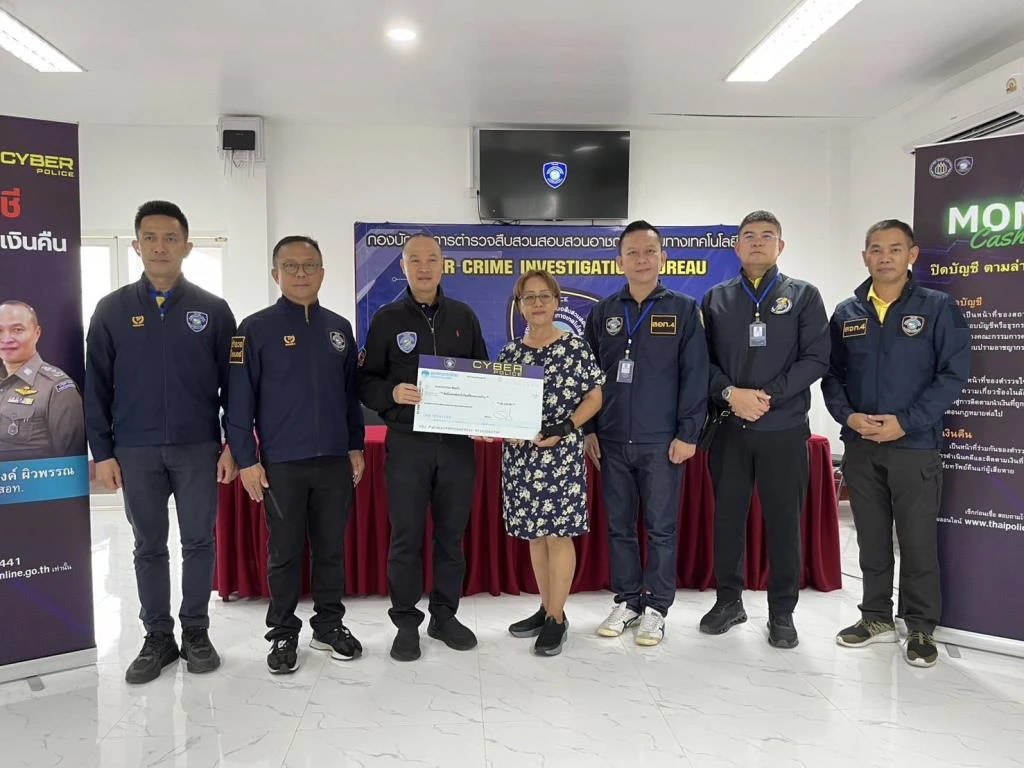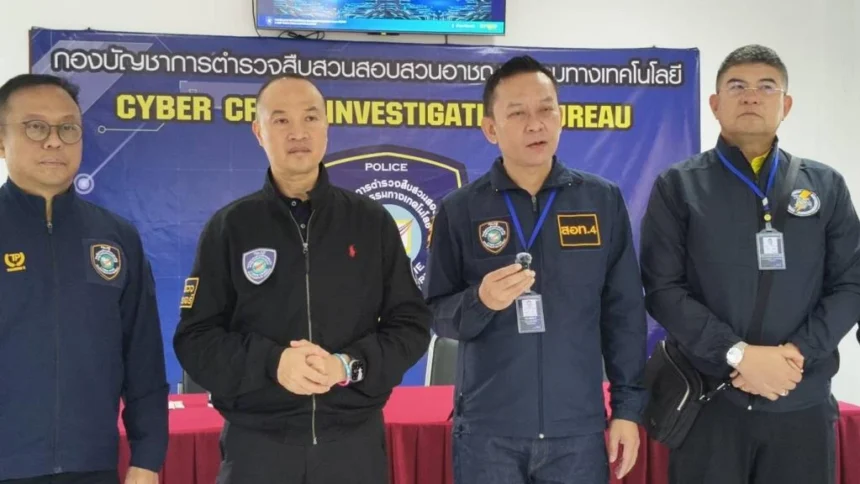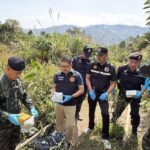CHIANG RAI – The head of the Cyber Crime Investigation Bureau (Cyber Police) told a press briefing that their latest operation in Chiang Rai led to the arrest of three more people linked to these scams. They had a new trick: buying people’s Line accounts to turn them into mule accounts online.
On 31 July 2025, Police Lieutenant General Trirong Phiwphan, commander of the Technology Crime Suppression Division (Cyber Police), together with Police Major General Kritach Bunrung Ratnayos, head of Division 4, and Police Colonel Khonsan Meephakdee, chief of Subdivision 4, gave a press update at Pobsok Building, Ban Du Police Station in Chiang Rai.
They spoke about the latest arrests of three suspects—two men and one woman—involved in opening illegal bank accounts (mule accounts). Evidence showed the group bought Line accounts from victims. They then used these accounts to sign up for Line BK and run illegal money operations through the app.
Police Lieutenant General Trirong explained that Police Major General Kritach and Police Colonel Khonsan’s team discovered a new approach used by scammers. They now create mule accounts online by buying Line accounts.

Police want to warn the public about this type of scam, which call centre gangs are running from major hubs in Cambodia. If a victim is a senior citizen, police will review the case and may decide not to prosecute if there is no wrongdoing.
He added that after fighting broke out between Thailand and Cambodia on 26 July, many Thais sneaking across the border to work in casinos or with call centre gangs in Poipet were attacked and have since returned to Thailand.
Authorities have already received around 1,000 returnees, but some remain, meaning these criminal groups in Cambodia continue to target Thais and others.
Police Col Khonsan said most of those tricked into selling their Line accounts are older adults living near the border in Chiang Rai. Many thought selling a Line account was harmless, but these accounts were used to sign up for financial services on Line BK, which allowed identity verification and unauthorized transactions.
Investigators found the three suspects withdrawing cash in Thailand, then handing it over to Lao contacts at the Thai-Lao border in Chiang Khong, Chiang Rai. They were paid a 1.5% fee for each withdrawal, with each transaction ranging from 300,000 to 500,000 baht.
The original Line account owners knew nothing of these transfers, but their accounts became part of a growing online mule account network.

On the same day, cyber police returned money to a call centre scam victim as part of the Money Cash Back project. A young woman from Phayao reported being tricked into installing an app on her phone, after which scammers took control and transferred 50,760 baht from her bank account.
Police received her report on 8 May 2025. They traced the funds and found 42,126 baht still in her account, which they returned to her. Other bank accounts involved in related cases held over 1.7 million baht, which police have also managed to recover and return to victims.
The cyber police urge people not to trust anyone claiming to be from the bureau who calls victims and offers to recover lost money. Officers will only meet victims in official settings, never through phone calls asking for details or promising refunds.
The Cyber police told reporters that Chiang Rai has seen a notable increase in cybercrime and scam activities, largely driven by its proximity to the porous borders of Myanmar and Laos in the Golden Triangle region. This area has become a hotspot for transnational organized crime, including cyber scams, due to weak governance, corruption, and the use of advanced technologies by criminal syndicates.
Thai authorities, including the Cyber Crime Investigation Bureau and Police Cyber Task Force, have intensified efforts. Joint operations with Cambodian police and raids in Chiang Rai have led to arrests and equipment seizures.














